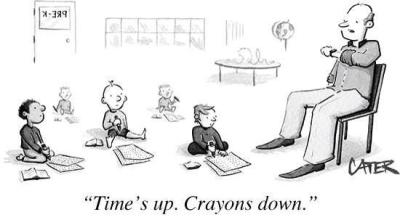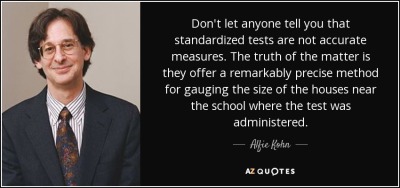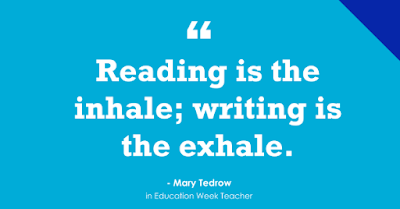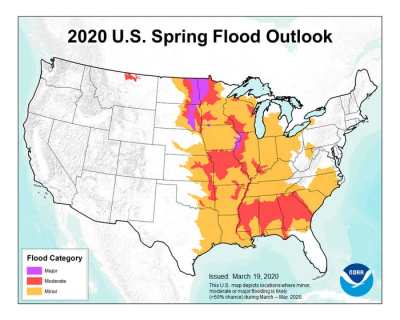Apparently, retirement is needed so there’s enough time to go to all the doctor appointments you’re going to need as you age.
Things have been quiet on this blog lately…for a variety of reasons. Now that things are a bit better I have a backlog of unposted Medley entries. To make it a bit easier, I’ll limit my own comments to one, or sometimes two, sentences max (Warning…prepare yourself for compound and run-on sentences)…
THE TEACHER SHORTAGE HASN’T GONE AWAY
‘Perfect storm’ of events causing teacher shortage crisis in Michigan
Who would have guessed that demonizing, overworking, reducing job security, and underpaying an entire profession of people would make that profession unattractive…leading to a shortage of teachers nationwide. Legislatures in large part caused the problem, and are now scrambling to fill classrooms with anyone, even those who are unqualified.
Carol Baaki-Diglio, Assistant Superintendent of Human Resources Oak Park Schools, says districts across the state are seeing an increase in retirements. She says it is part of a trend schools have seen for the past decade, that has been made worse by the pandemic creating more work, stress, and health fears.
“Our staff has also experienced loss. Loss of parents. Loss of colleagues,” said Baaki-Diglio.
She says we are seeing the perfect storm for a crisis.
“The perfect storm being far fewer people are choosing education, so we have fewer coming in, and then we have a mass exodus going out,” she said.
PUNISHING SCHOOLS FOR THE FAILURES OF SOCIETY
In Camden, School Closures Revealed How Unequal the System Can Be
Public schools are name-called as “failing” while legislatures, unable or unwilling to solve problems of unemployment and poverty, ignore their own impact on student achievement. It’s much easier to blame public schools than to accept one’s own responsibility.
During the Obama Administration, thousands of public schools were closed due to being deemed “low performing” because of their students’ test scores [Blogger’s Note: This is also true for the Bush Administration’s No Child Left Behind plan]. This was part of Obama’s Race to the Top initiative, and it resulted in school closures in cities across the United States—including Chicago, Cleveland, New York City, and Philadelphia—in a misguided attempt to improve the education of Black and brown children.
In 2012, Race to the Top caught on in New Jersey, where state officials determined that twenty-three of Camden’s twenty-six traditional public schools were “failing.” After taking over the Camden school district in 2013, state lawmakers made school closures their go-to strategy to remedy poor academic performance or budget shortfalls, despite the negative consequences school closures often led to.
Closing schools continues to be a popular “school improvement” strategy well into this new decade. But based on results in Camden, it’s clearly failed.
I heard a quote recently (forgot where and from whom) that goes something like, “The way to get rid of high poverty schools is to get rid of high poverty schools.” Legislatures insist on “rating” schools without doing anything to ease the problems of economic and racial segregation. In Indiana, the legislature passed a law that will end the punishment of “F” schools. Now it’s just a tool for shaming them. (I know…more than two sentences. Further down is one with no comment, so we’re even.)
The correlation between the percentage of “at-risk” students and standardized test score “proficiency” (high school) is 0.8
That’s…massive. That’s like the correlation between rain and rainclouds.
Meanwhile…The correlation between the % of at-risk students in a school and that school’s GROWTH RATE on standardized test scores is…like…zero.
Wow.
OK not wow. Because…well…that’s exactly the point of growth scores. They are designed to take into account the uneven distribution of students across schools.
Schools serving privileged kids are not “better” just because they have higher test scores. Those students would score roughly the same no matter where they went to school.We can’t say, just by looking at proficiency rates, what the quality of a school is. Because…demography.
CONSERVATIVE PRIVATIZATION AT THE UNIVERSITY LEVEL
Why Conservatives Want to Cancel the 1619 Project
Conservatives claim that America’s public universities are hotbeds of liberal (or socialist) subversion, and UNC is willing to do what they can to “suppress ideas they consider dangerous.”
The prevailing conservative view is that America’s racial and economic inequalities are driven by differences in effort and ability. The work of Hannah-Jones and others suggests instead that present-day inequalities have been shaped by deliberate political and policy choices. What appears to be an argument about reexamining history is also an argument about ideology—a defense of the legitimacy of the existing social order against an account of its historical origins that suggests different policy choices could produce a more equitable society.
Campus Cancel Culture Freakouts Obscure the Power of University Boards
One only needs to look at the billions of dollars of influence the Koch brothers have had on public schools and especially on college campuses to see how the fringe right-wing, now the base of the Republican Party, has had an impact on education in America.
…the right is not underrepresented in higher education; in fact, the opposite is true: The modern American university is a right-wing institution. The right’s dominance of academia and its reign over universities is destroying higher education, and the only way to save the American university is for students and professors to take back control of campuses.
Koch supporter, and billionaire anti-public school advocate, Betsy DeVos is stymied by a federal judge.
Former US ed sec Betsy DeVos did not want to give a formal, in-person account of her decision to side with defunct, for-profit, California-based Corinthian Colleges by not granting monetary relief to hundreds of thousand of students defrauded by this federal-aid-sucking monster.
However, on May 19, 2021, US District Judge William Alsup refreshingly denied DeVos’ “motion to quash a subpoena for her deposition.”
FACTS HAVE A WELL-KNOWN LIBERAL BIAS
Opinion: The Trumpy right is violating everything our children are taught
…only a quarter of U.S. students are proficient in civics, according to the National Assessment of Educational Progress. And apparently, the right wants to keep it that way.
A bipartisan bill in Congress sponsored by Republican Sen. John Cornyn of Texas and Republican Rep. Tom Cole of Oklahoma (Disclosure: My wife’s stepmother, Rep. Rosa DeLauro of Connecticut, is one of the bill’s Democratic sponsors), would authorize $1 billion a year in grants to pay for more civics and history programs that teach children “to understand American Government and engage in American democratic practices as citizens and residents of the United States.” It’s as American — and as anodyne — as apple pie.
But, as The Post’s Laura Meckler reported over the weekend, “Conservative media and activists are pelting the Republicans who support the bill to abandon it. They call the grant program a ‘Trojan horse’ that would allow the Biden administration to push a liberal agenda.”
Fossil Fuel Interests Caught Peddling Propaganda to Schoolchildren
Science teachers, who work to help students understand climate change, are undercut by propaganda from the fossil fuel industry — funneled through the Heartland Institute — denying science.
Fossil fuel companies and climate denial groups have long sought to shape how the next generation perceives climate change, turning the classroom into a battleground for what the country’s future ideology will be. In 2012, leaked documents revealed that the oil and gas-funded Heartland Institute, a conservative and libertarian public policy think tank that promotes climate denialism, planned to spend $200,000 over two years to sow doubts about the scientific consensus on climate change in K-12 classrooms. Years later, the think tank mailed 350,000 booklets titled, “Why Scientists Disagree About Global Warming” to students across the country.
The Heartland campaign is an overt example of fossil fuel interests attempting to influence children’s understanding of climate change, but groups also employ more subtle methods to paint a favorable picture of the fossil fuel industry.
Will teachers be able to leave their own tribal biases behind and help students become critical thinkers? If not, will we ever live in a nation with a shared fact base again?
In one particularly troubling analysis, researchers found that when a fact-check revealed that information in a post was wrong, the response of partisans wasn’t to revise their thinking or get upset with the purveyor of the lie.
Instead, it was to attack the fact checkers.
TIME FOR SOME RATIONAL THINKING
19 Rules for Life (2021 Edition)
Read all 19 of Peter Greene’s rules for a refreshing taste of rational thinking.
1. Don’t be a dick.
There is no excuse for being mean on purpose. Life will provide ample occasions on which you will hurt other people, either through ignorance or just because sometimes life puts us on collision courses with others and people get hurt. There is enough hurt and trouble and disappointment and rejection naturally occurring in the world; there is no reason to
deliberately go out of your way to add more. This is doubly true in a time like the present, when everyone is already feeling the stress.

















